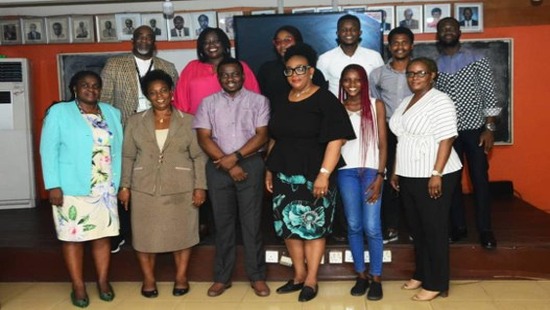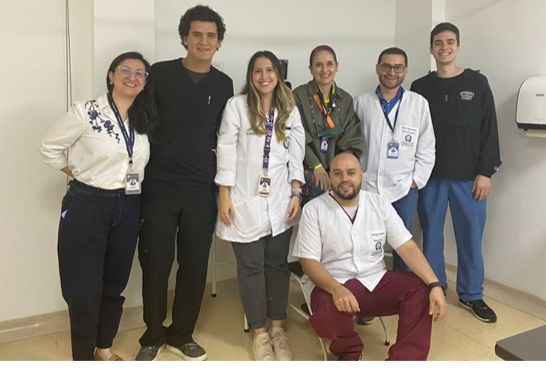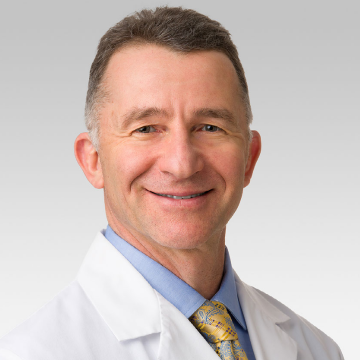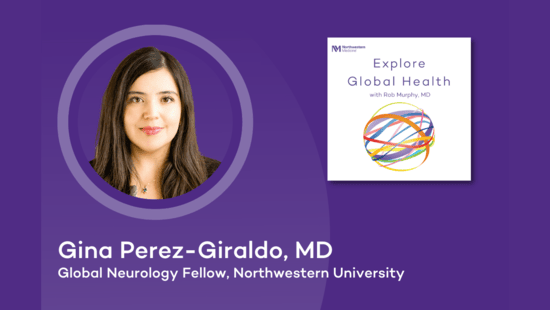Koralnik Leads Team Researching Neurologic Manifestations of Long COVID

Five years after COVID-19 began, long COVID continues to affect people worldwide. Long COVID, defined as lingering symptoms for more than three months after the initial COVID-19 episode, leads to brain fog and cognitive dysfunction.
In Colombia, a middle-resource country in Latin America, Carolina Hurtado Montoya, MD, PhD, leads a research team focused on long COVID. Working with her are neuropsychologists Diego Rojas-Gualdron, MSc, Ricardo Montoya, MSc, Julian Carvajal, MSc, and their trainees at CES University in Medellin, Colombia.
The team also includes Igor Koralnik, MD, chief of Neuro-Infectious Disease and Global Neurology in the Department of Neurology and director of the Program for Global Neurology, a part of the Robert J. Havey, MD Institute for Global Health.
“Millions of people in the world are affected by long COVID, and many suffer from altered quality of life and ability to work,” Koralnik said.

The team researches long COVID at CES University in Medellin, Colombia.
The team explores this with their catalyzer award project, “Outcomes of cognitive rehabilitation in Long COVID patients with cognitive dysfunction in Colombia.”
This study aims to evaluate the outcomes of cognitive rehabilitation in 40 long COVID patients with cognitive dysfunction in Medellin, Colombia, and explore biomarkers and clinical variables associated with the outcome. A biomarker, as defined by the National Cancer Institute, is a "biological molecule found in blood, other body fluids, or tissues that is a sign of a normal or abnormal process, or of a condition or disease.”
The neuro-COVID-19 patients with brain fog and cognitive dysfunction in Chicago are referred for cognitive rehabilitation at Shirley Ryan AbilityLab. The team adapted the same method of treatment for the Spanish-speaking population of Medellin, Colombia. The treatment includes six 60-minute sessions administered by clinical neuropsychologists over a period of six to eight weeks.
Additionally, the team collects blood samples from the 40 patients and 40 age-sex matched COVID recovering controls, who got COVID but do not have any lingering symptoms. The blood samples are analyzed in the Koralnik Lab in Chicago using proteomic analysis of biomarkers of mitochondrial dysfunction in long COVID patients.
Millions of people in the world are affected by long COVID, and many suffer from altered quality of life and ability to work.”

"Our work has had a significant impact on understanding long COVID in the Colombian population because we have been able to document cases of patients - both younger and older patients - up to three years after acute infection, in both hospitalized and non-hospitalized individuals," Hurtado Montoya said. "With our current research, we hope to develop effective rehabilitation strategies for long COVID, which is imperative because there are currently no established treatment options available for many affected patients in our population, as well as in other Latin American countries as far as we know."
Sharing the Shirley Ryan AbilityLab protocol with the population in Colombia increases treatment alternatives and reduces barriers to access in other Spanish-speaking countries, allowing clinical neuropsychologists and other healthcare professionals in Medellín to not only provide direct care to the patients in the study, but also bring this knowledge to other institutions.
Long COVID commonly causes fatigue, fever, difficulty breathing, headaches and more, and this team hopes to help improve quality of life and ability to work for those affected.
“The work we do is necessary to fill an urgent unmet need to treat large numbers of people affected by long COVID brain fog and cognitive dysfunction in Colombia, using cognitive rehabilitation,” Koralnik said. “It will also allow us to characterize blood biomarkers of long COVID in Colombia and compare it with samples collected in the U.S. and in other international sites.”
Igor Koralnik, MD, is a member of the Robert J. Havey, MD Institute for Global Health, Northwestern University Clinical and Translational Sciences Institute (NUCATS) and Robert H. Lurie Comprehensive Cancer Center.
To learn more about the Program for Global Neurology, visit their website.
For details on events, news and funding opportunities, sign up for the Havey Institute for Global Health newsletter.

